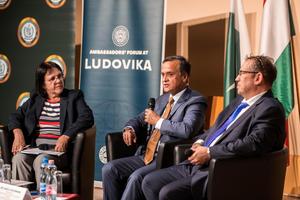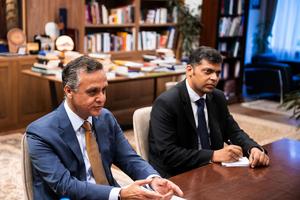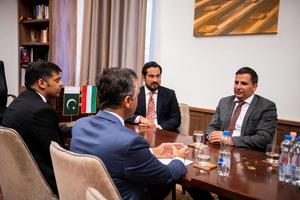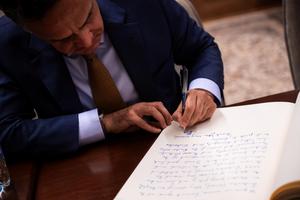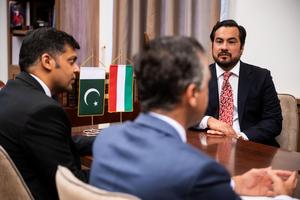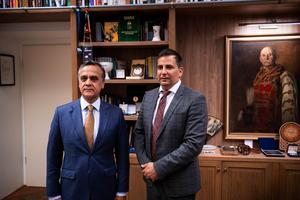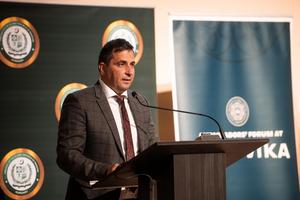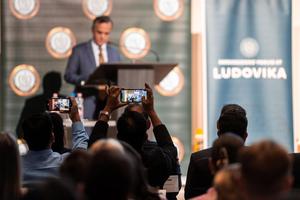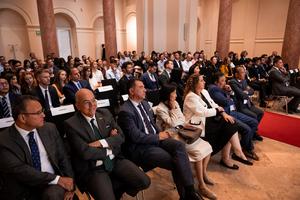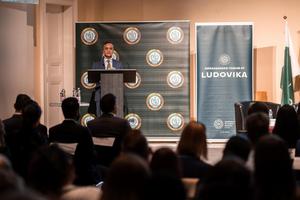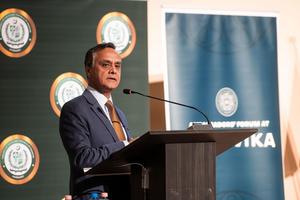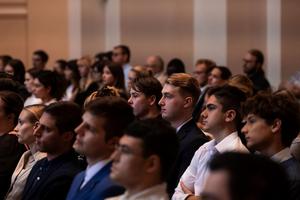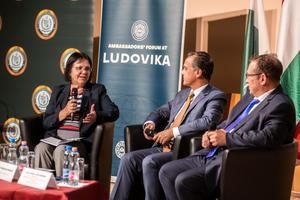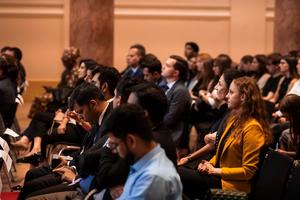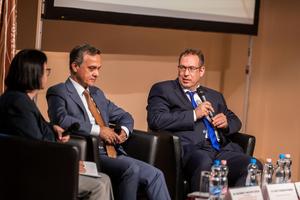The Ludovika Ambassadors' Forum, organized by the International Office of the Ludovika University of Public Service, held another event on September 24 in the Saint Ladislaus Chapel. The guest this time was the Ambassador of Pakistan to Budapest.
The event was opened by the rector of Ludovika University of Public Service. Gergely Deli stated that the two countries are jointly working to strengthen cooperation in agriculture, technology, and energy sectors. In recent years, Pakistan and Hungary have also collaborated on joint research projects and academic exchange programs. Relationship-building extends to higher education as well, in the form of exchange programs and university partnerships. The Hungarian government provides opportunities for Pakistani students to study in Hungary through the Stipendium Hungaricum scholarship program.
“Regarding the international exchange programs of Ludovika University of Public Service, I can proudly say that we regularly host students from Pakistan. Currently, under the Stipendium Hungaricum program, four Pakistani students are studying International Public Service Management, Environmental Engineering, and International Relations. In addition to scholarship students, we also have two self-funded Pakistani students,” emphasized the rector, adding that while these numbers may still seem modest, this is just the beginning. “We are working to expand our cooperation in student exchange programs and to establish direct academic connections with Pakistani higher education institutions through inter-institutional agreements,” he added. Hungarian–Pakistani higher education cooperation contributes to strengthening academic relations, promoting cross-cultural understanding, and providing a pipeline of trained professionals in both countries.
Following this, Ambassador Asif Hussain Memon delivered a keynote speech on Pakistan’s foreign policy priorities. (An interview with the ambassador was conducted by our university’s scientific and educational portal, ludovika.hu. The conversation can be read HERE.) In his historical overview, the ambassador highlighted key events shaping foreign policy since the country’s founding in 1947. It was noted that following the 1974 Islamic Summit (OIC), strengthening regional unity and economic, political, and religious ties among Muslim nations became a priority. Currently, building relations with China plays an important role in both foreign policy and economic life. Regarding current foreign policy priorities, the ambassador emphasized achieving peaceful neighborhood relations, supporting multilateral cooperation, expanding economic collaboration, and strengthening international law order. These tasks are challenged by several issues, including regional diktats, “frozen conflicts,” climate change, the challenges posed by artificial intelligence, and global pandemics.
The lecture was followed by a roundtable discussion, featuring Asif Hussain Memon, Erzsébet N. Rózsa, university professor at the Department of International Relations and Diplomacy at FPGIS, and László Csicsmann, lead researcher at the Hungarian Institute of International Affairs. Among other topics, the discussion addressed the China–Pakistan Economic Corridor (CPEC), challenges of terrorism and regional security, and the recently concluded mutual defense agreement between Pakistan and Saudi Arabia, finalized after long preparation.
Text: Lilla Kovács
Photo: Dénes Szilágyi
